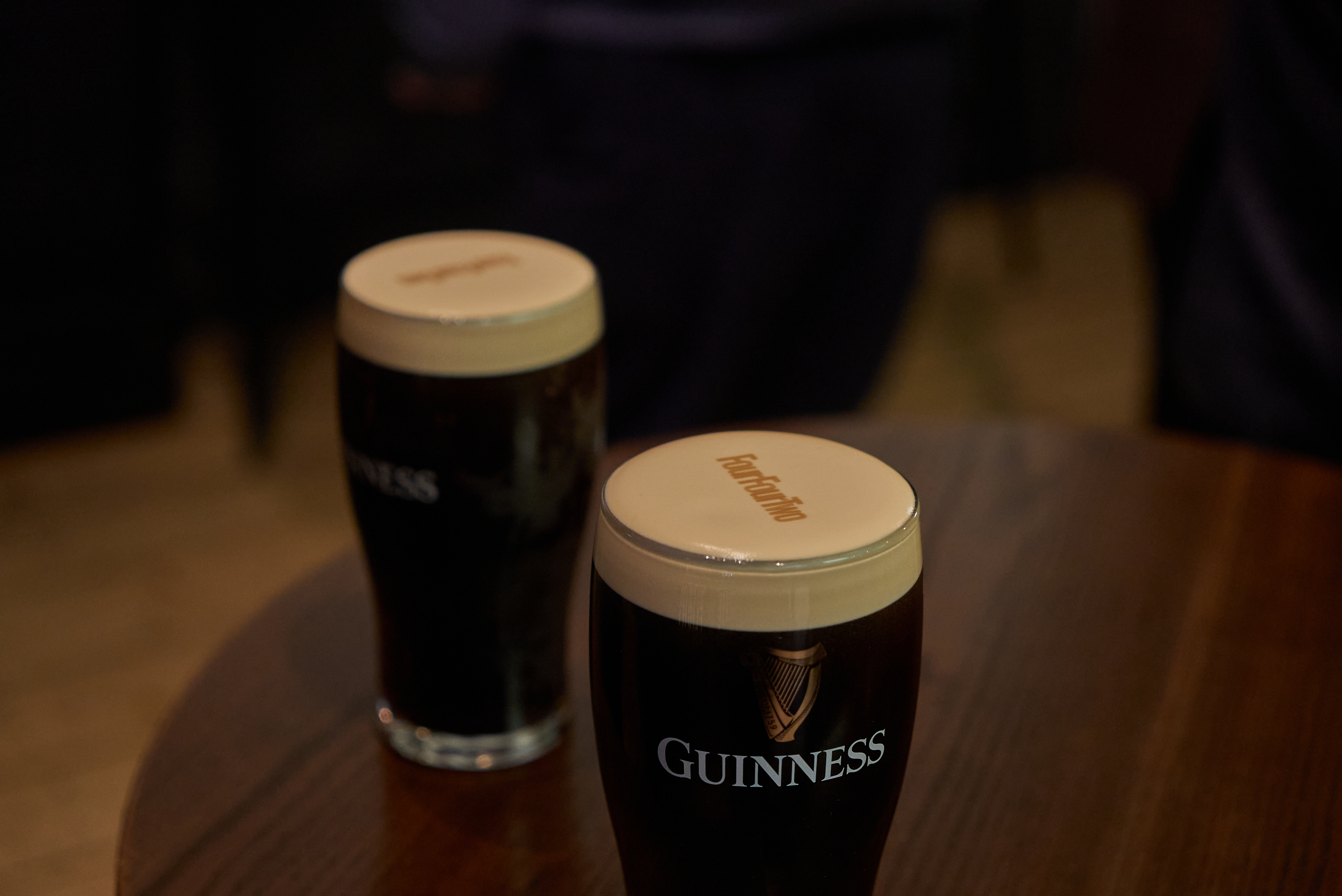Best soccer cleats for midfielders: The latest ranges designed for middle of the pitch players from Nike, Adidas and New Balance
The best soccer cleats for midfielders, as worn by the likes of Kevin De Bruyne, Jude Bellingham and Rodri
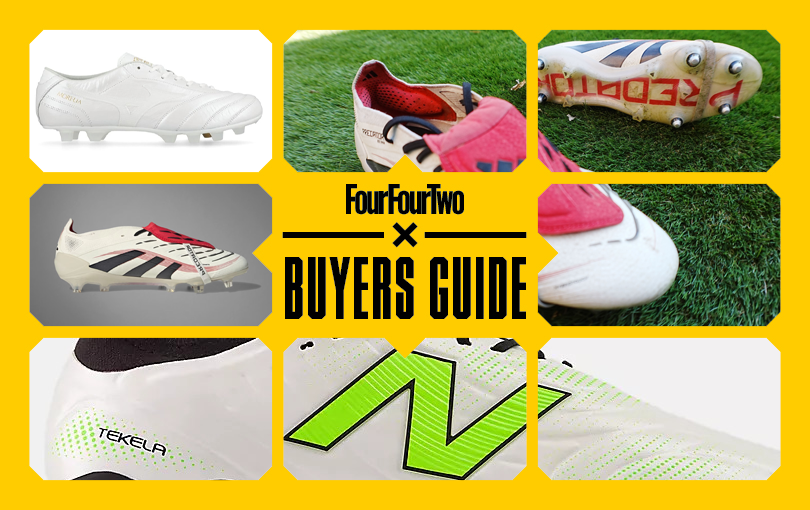
While it is of course possible for any player to wear any cleat regardless of where they play, it is only natural for you to want to look for a pair that complements your game. The best pair will always be the ones that you feel fit your feet the best. The below list is a starter point for options that may appeal to midfield players.
Having the right cleats can make a huge difference to a player's game, with certain ranges specifically designed to assist goalkeepers, defenders, midfielders and strikers. FFT has been dedicating itself to categorising designs to make cleat shopping easier for you. If you're simply looking for the best soccer cleats out there right now, be sure to check out our other reviews.
But here you'll find the best soccer cleats on the market right now for midfielders...
The quick list
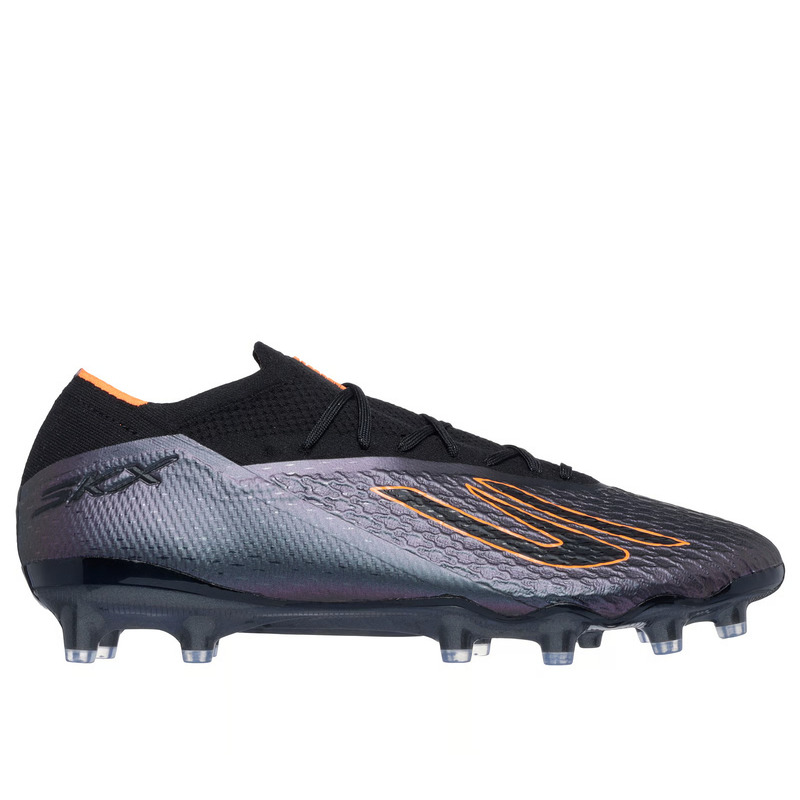
The Skechers SKX 2 is a significantly improved "control" cleat designed for creative players, featuring a soft, thin, and sticky upper with PSC texturing for a close, distraction-free touch, combined with a comfortable, flexible outsole carried over from the previous generation.
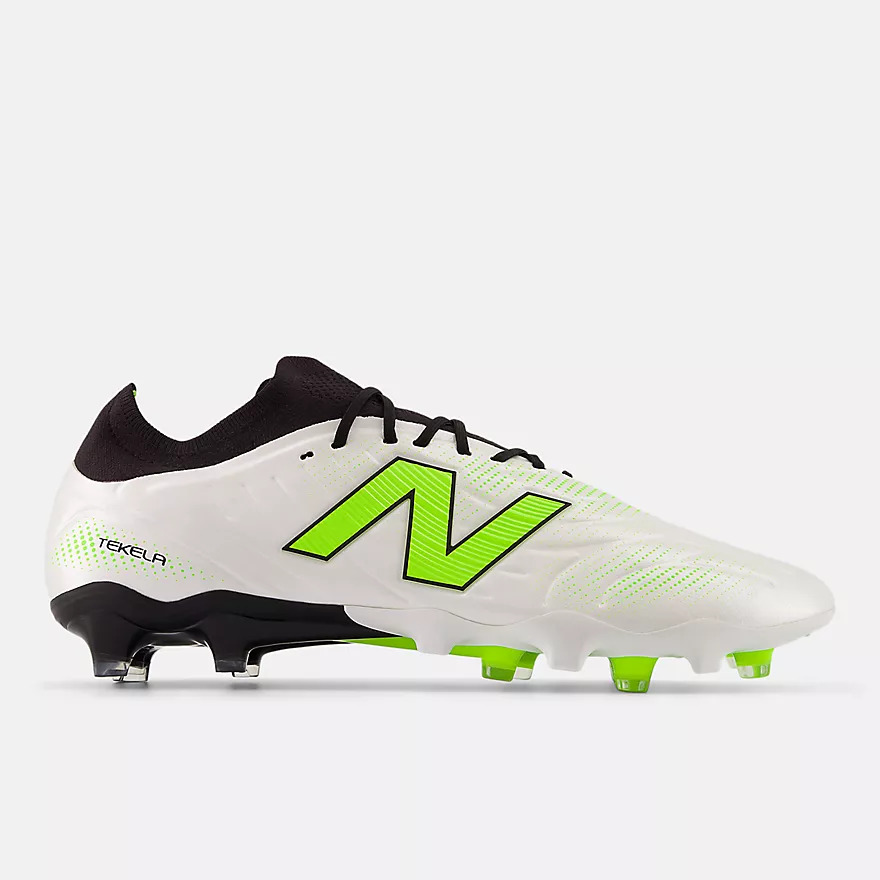
If staying on your feet in midfield is a priority, the Tekela V5 cleats could be worth a try, providing a soft, comfortable, leather-imitating feel with added subtle grip for creative midfielders, while retaining the reliable, comfortable soleplate of its predecessors.
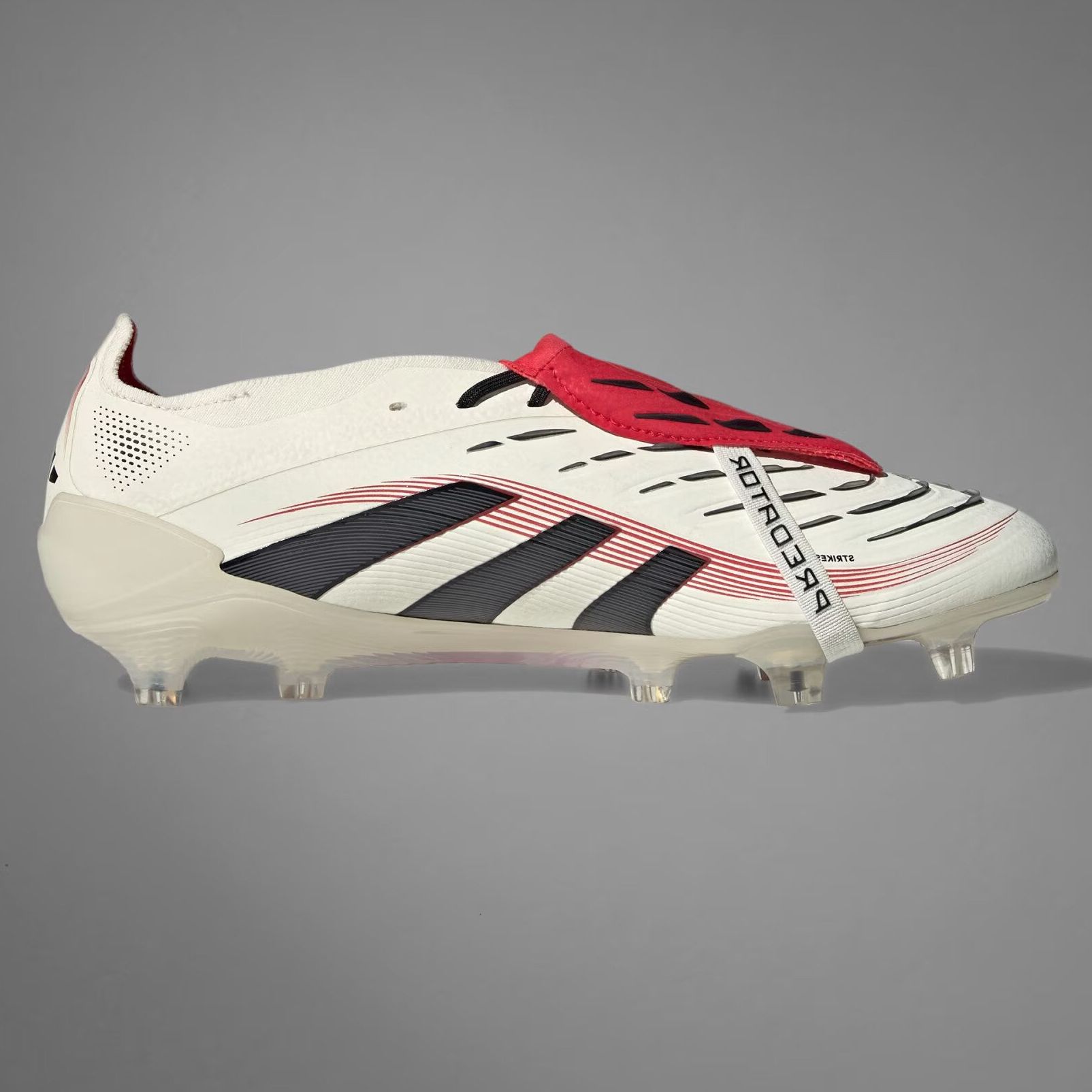
The adidas Predator 25 Elite wisely maintains the successful formula of its predecessor, offering a simple facelift with the most significant positive change being the softer, more flexible Hybridtouch 2.0 upper, while retaining the signature rubber elements to aid striking, ensuring the Predator renaissance continues.
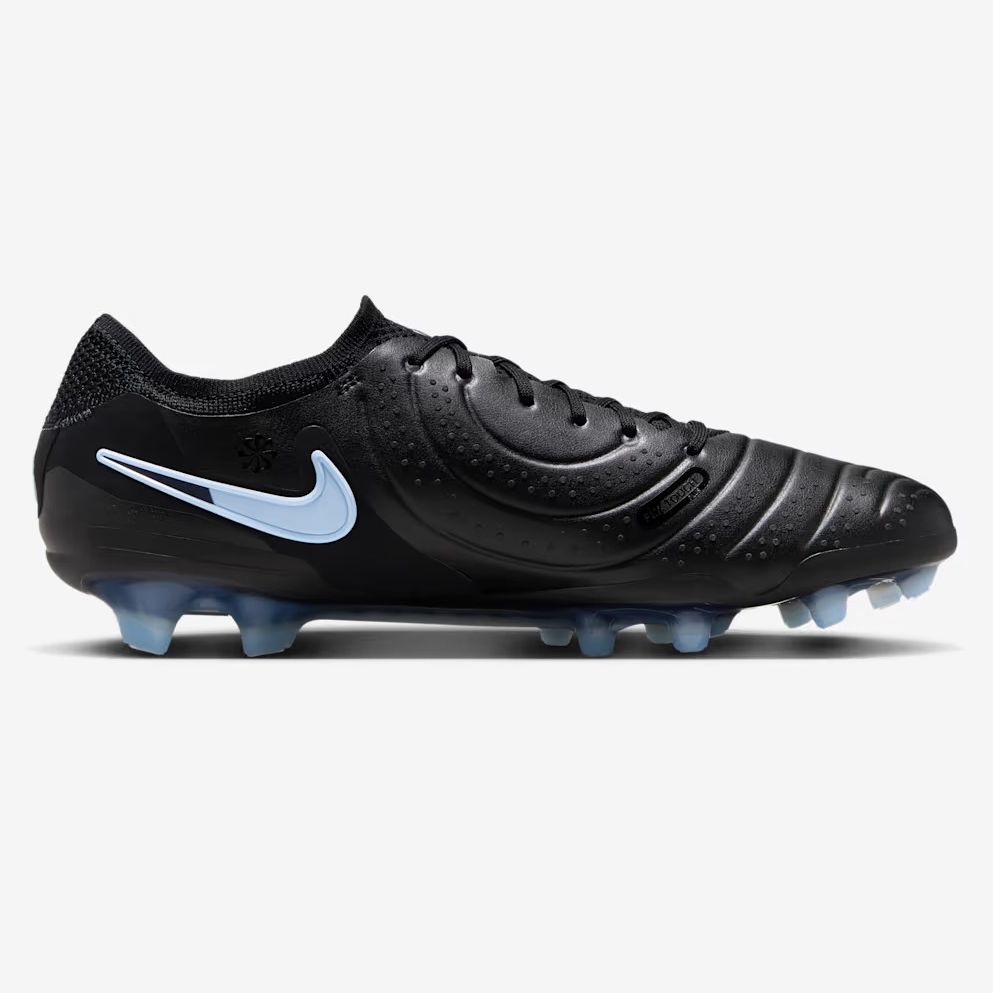
The Nike Tiempo Legend 10, the first model without natural leather, is a streamlined and lightweight cleat featuring a comfortable FlyTouch Plus synthetic upper that, despite not fully replicating true leather, performs well and has been marketed towards creative midfielders.
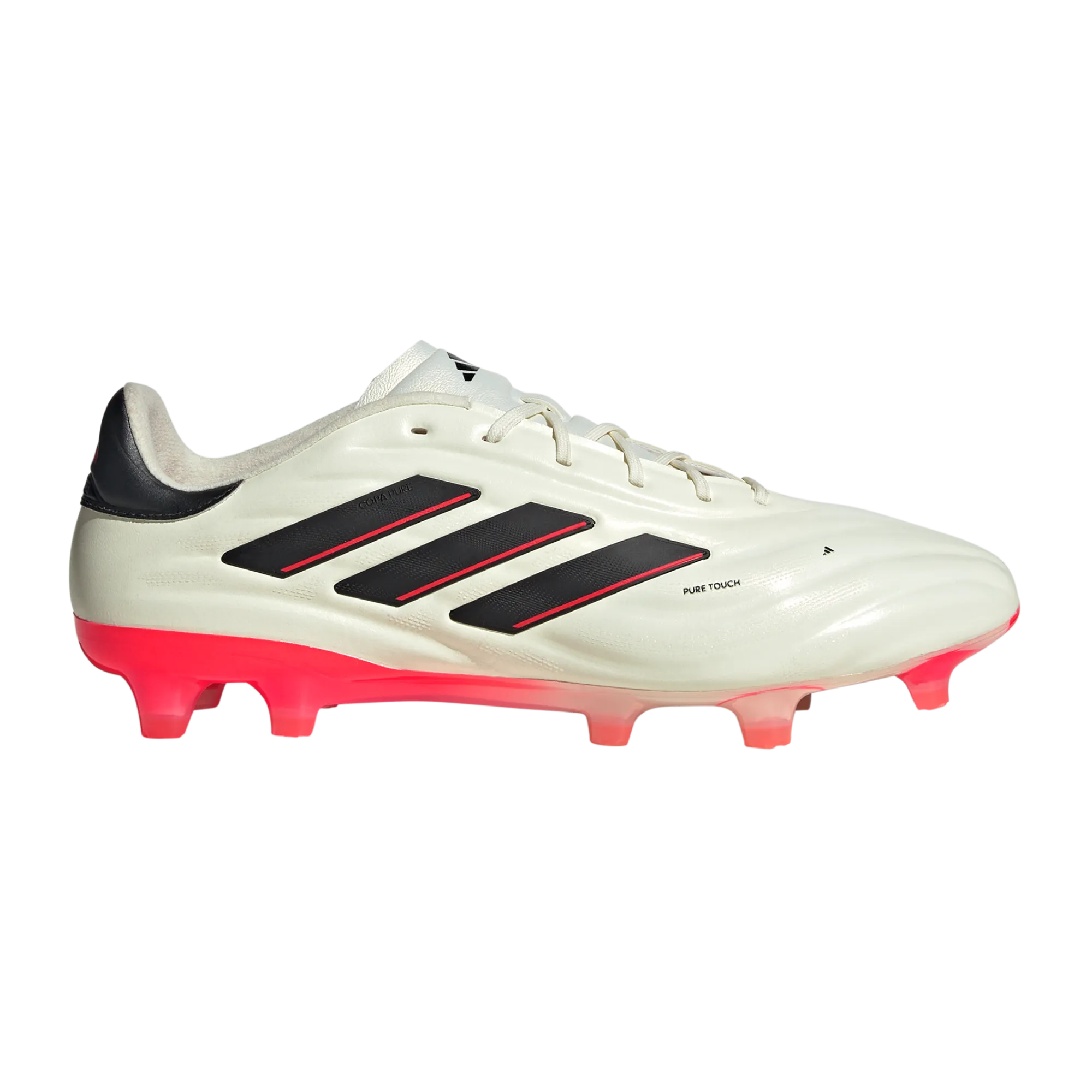
The Mizuno Morelia 2 UL is an ultralight version of the classic Morelia 2, delivering the same renowned comfort and build quality with significantly reduced weight, offering the rare combination of a disappearing feel and the soft touch of leather, though this top-tier performance comes with a high price tag.
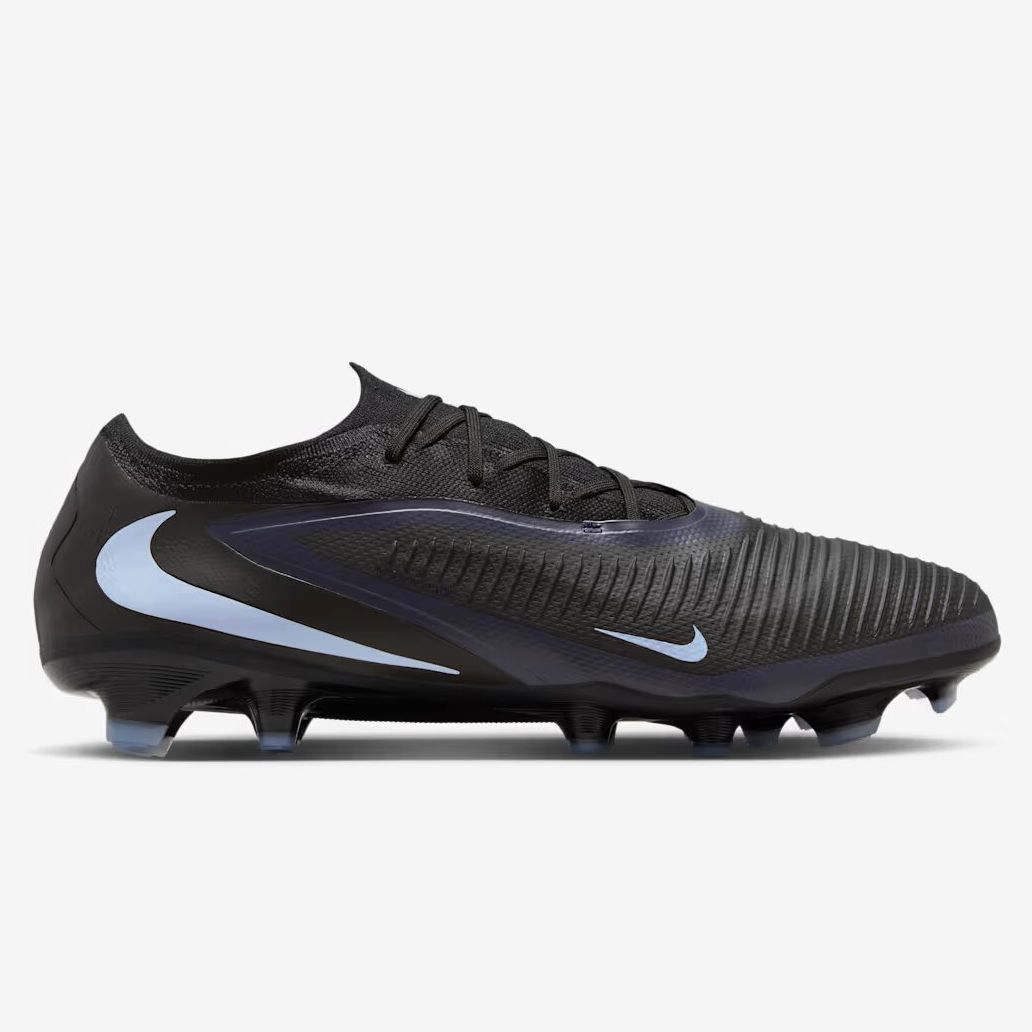
The Nike Phantom 6 Elite is superior to its predecessors, combining a softer, grippier GripKnit upper with an off-centre lacing system for a large strike zone and an improved, stiffer Cyclone 360 outsole for enhanced stability, while remaining comfortable and accommodating for wider feet.
Best for control
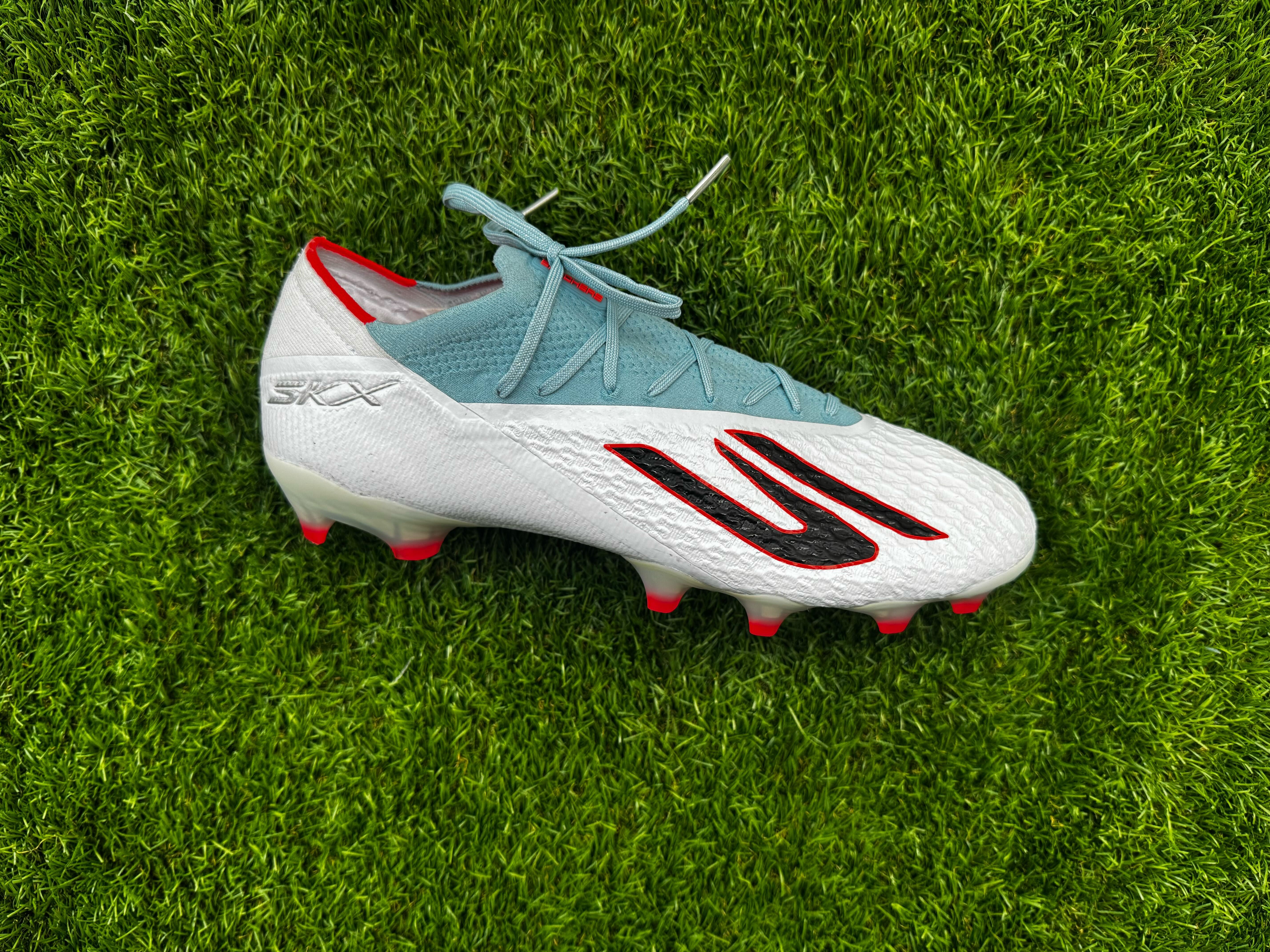
Skechers SKX 2
Our expert review:
Specifications
Reasons to buy
Reasons to avoid
The Skechers SKX 2 is one of the best cleats released in 2025. The SKX 1 was a more than solid first foray into the elite space for the Skechers, but the model has come on leaps and bounds with the latest iteration. If any doubters about the brand’s place in the market remained, this is a cleat to either silence or convert them.
The SKX 2 is Skecher’s ‘control’ cleat, aimed at those who getting on the ball and dictating, and the overall package lends itself well to that. It is built in a way that provides very few distractions, allowing you to concentrate on what matters. The upper is soft and flexible out of the box and does not need any time to break in before being as comfortable as one would expect from a Skechers product. The upper also has a subtle stickiness to it to offer some extra grip on the ball with the PSC texturing seeking to aid touch. It is also thin enough to provide the one-on-one feeling that creative players will appreciate but without sacrificing structure.
The outsole is the same as featured on the previous generation of the SKX, featuring diamond shaped studs in a main – offering a balance between rotational support and some extra bite. This is a soleplate that is definitely on the more flexible, comfortable side overall. Skechers continue to go from strength to strength in the very early stages of its soccer cleat journey.
Best for stability

New Balance Tekela V5
Our expert review:
Specifications
Reasons to buy
Reasons to avoid
Over the last few years, the New Balance Tekela has topped many an ‘underrated’ list and with the V4 and V4+ came to recognised as a model about as good as anything else out there. For this reason, NB’s decision to completely revamp the upper material and move away from the hypoknit that has served them so well on both the Tekela and on the New Balance Furon raised a few eyebrows. However, it is a decision that has paid dividends with the Tekela V5+ being as good, if not better than its excellent predecessor.
The hypoknit on the upper has been replaced by NB’s dynamic touch – the knit of the V4+ gone with a leather imitating synthetic in its place. And though, as with just about all materials of this type, it does not quite manage to truly replicate the feeling of natural leather, the upper here is soft and comfortable out of the box and moulds to your feet quickly. There is also some subtle grip added to key areas of the cleat, creating a package that the midfield creators of the world will likely appreciate.
The soleplate is the same as the V4 and V4+, featuring predominantly conical studs with some bladed studs either side of the outsole. It is a no-frills plate that is comfortable under foot and offers good rotational support with the added aggression provided by the blades. In terms of fit, as ever, New Balance offer a wide fit variation of the cleat, but the regular version is accommodating enough to still fit most foot types. The NB Tekela continues to go from strength to strength.
Best for traditionalists
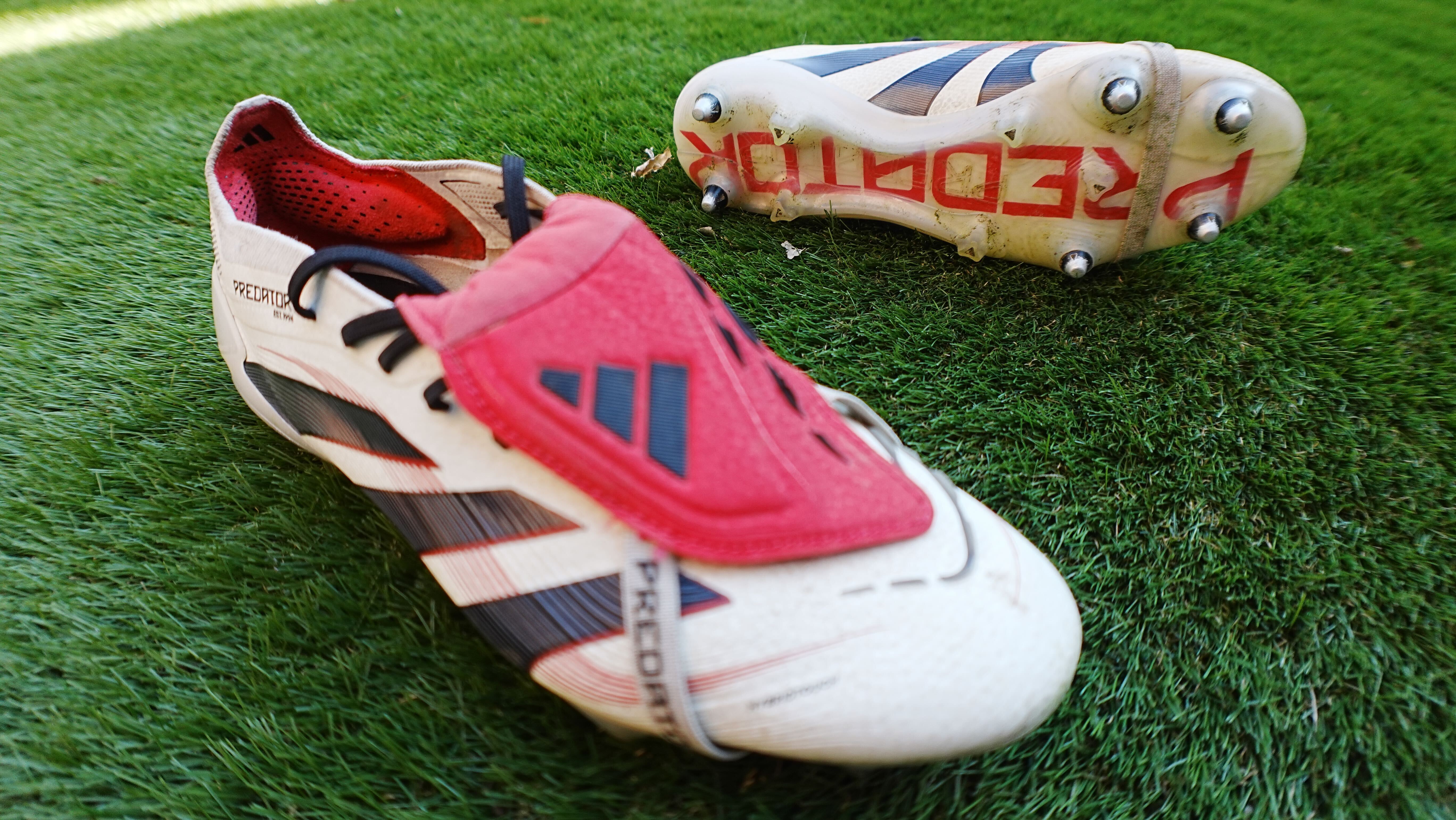
Specifications
Reasons to buy
Reasons to avoid
David Beckham, Steven Gerrard, Frank Lampard, Zinedine Zidane, Paul Pogba and Jude Bellingham are just some of the midfield maestros that have donned various iterations of the cleats over the years.
With the Predator 25 Elite, adidas has wisely opted not to mess with the formula that was so well received with the Predator 24 and have instead gone for more of a facelift than a total reconstruction of a cleat that was so roundly praised. The Hybridtouch 2.0 that forms the upper of the 25 is softer and more flexible than the previous model – this being the most significant change and a positive one at that.
The cleat is still very narrow in the toebox so may be slightly uncomfortable for those with very wide feet. It would not be a Predator model without the rubber elements to aid swerve and dip when striking the ball and they are here too, slightly redesigned from the previous model. The Predator renaissance continues and shows no signs of slowing down.
Best fit
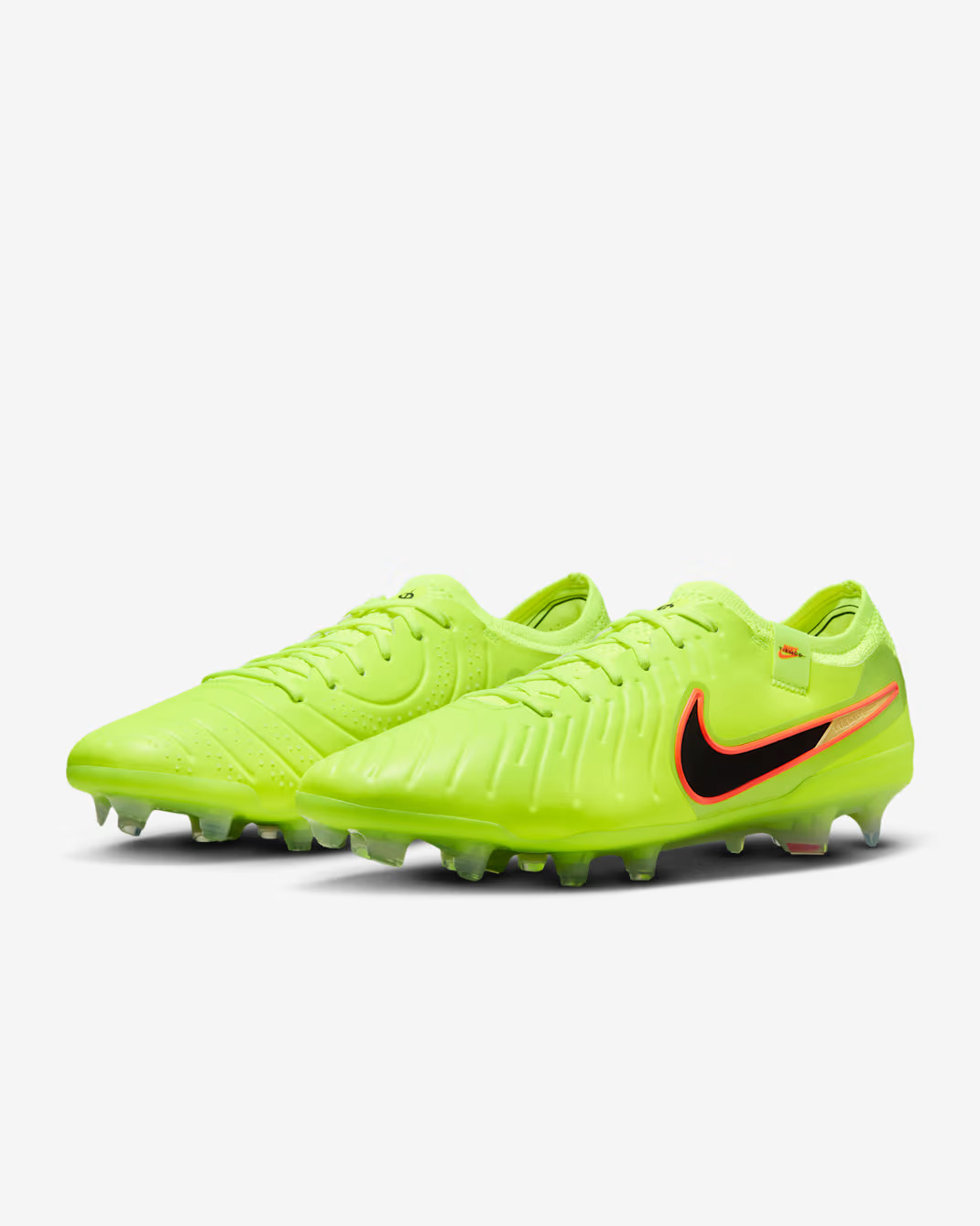
Specifications
Reasons to buy
Reasons to avoid
The Tiempo Legend 10 is the first generation since Nike made the bold choice of removing the natural leather on a model with which the material is synonymous. It is a decision that was met with dismay in many corners and increased the scrutiny on the new release. While the result is something that many classic Tiempo lovers will find difficult to warm to in the same way, it is a good soccer cleat in its own right.
The Legend 10 is a much more streamlined, lightweight interpretation of the classic name. The FlyTouch Plus that forms the upper and is designed to imitate the feeling of leather is soft and comfortable out the box. It does not quite manage to feel like natural leather, but this takes nothing away from its overall great fit. It also features some subtle texturing to aid when controlling and dribbling the ball. It is clear that Nike has gone in the direction of marketing the cleat to creative midfielders with the likes of Jamal Musiala, Christian Eriksen and Frenkie De Jong all switching into the latest generation. The FG model features mainly conical studs with some bladed studs towards the forefoot and some other areas for a little extra traction. It is a fairly basic outsole geared towards comfort underfoot.
If the Nike Tiempo 10 Elite were released with any other name, it would likely have been received much more positively. It is a cleat that does not try to do too many things and is able to do the things it does try to do pretty well.
Best overall
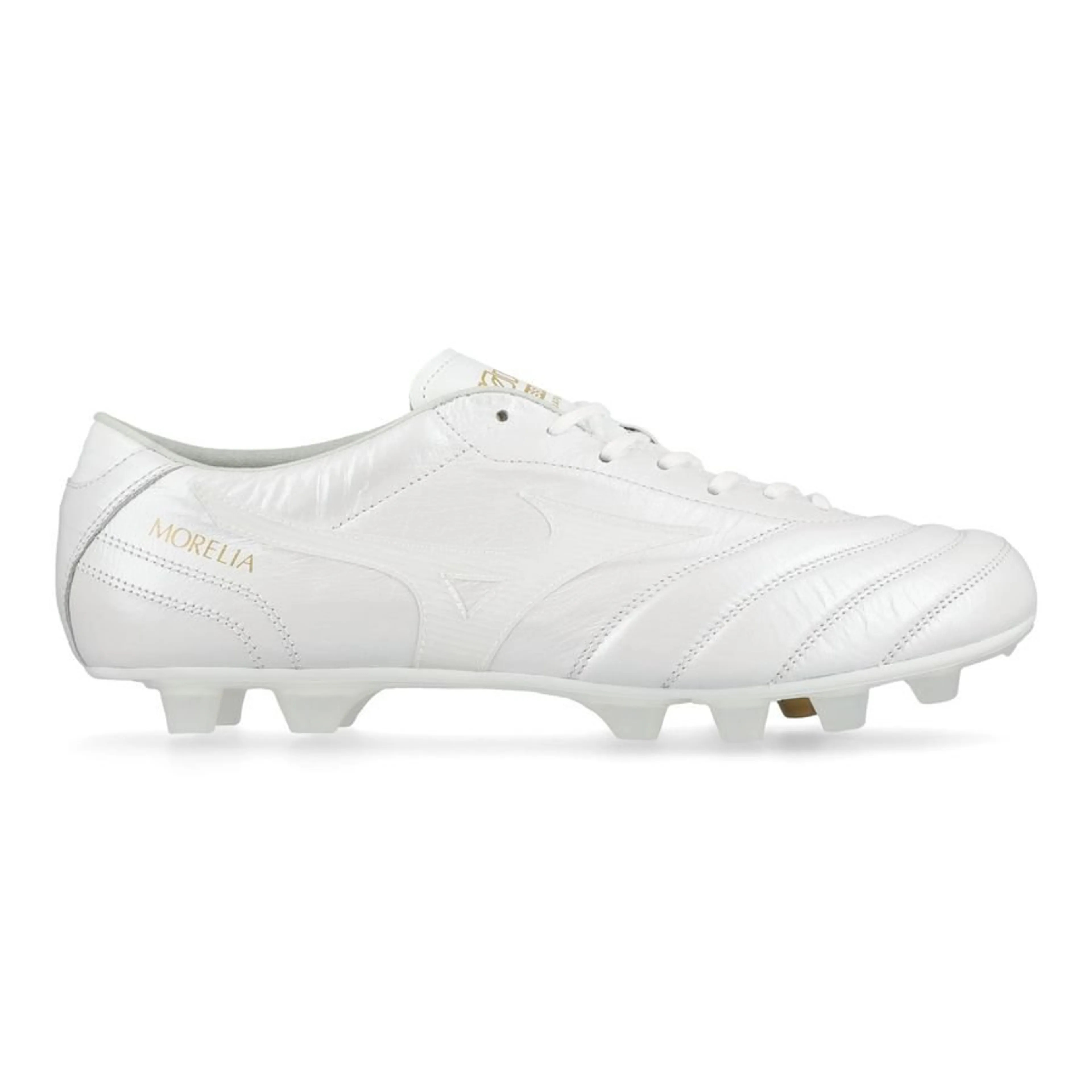
Mizuno Morelia II UL Made in Japan
Our expert review:
Specifications
Reasons to buy
Reasons to avoid
The Mizuno Morelia 2 UL is an ultralight version of the best-known model from the Japanese brand. It boasts all of the comfort and build quality of the regular Morelia 2 but with a lightweight-ness that is difficult to believe when you first put them on. It is not that the Morelia 2 is ordinarily a heavy cleat, but the weight shaved here in combination with the comfort of the cleat means they feel as they though disappear onto your cleat in a way that any midfielder will appreciate. The benefit of having both a very light pair of cleats and the soft touch of leather is relatively rare and certainly rare to the level achieved by the Morelia 2 UL.
The only major drawback with these as with all Made in Japan models from Mizuno is the huge price tag. In return though, is one of the very best pairs of soccer cleats that money can buy.
Best for strikers
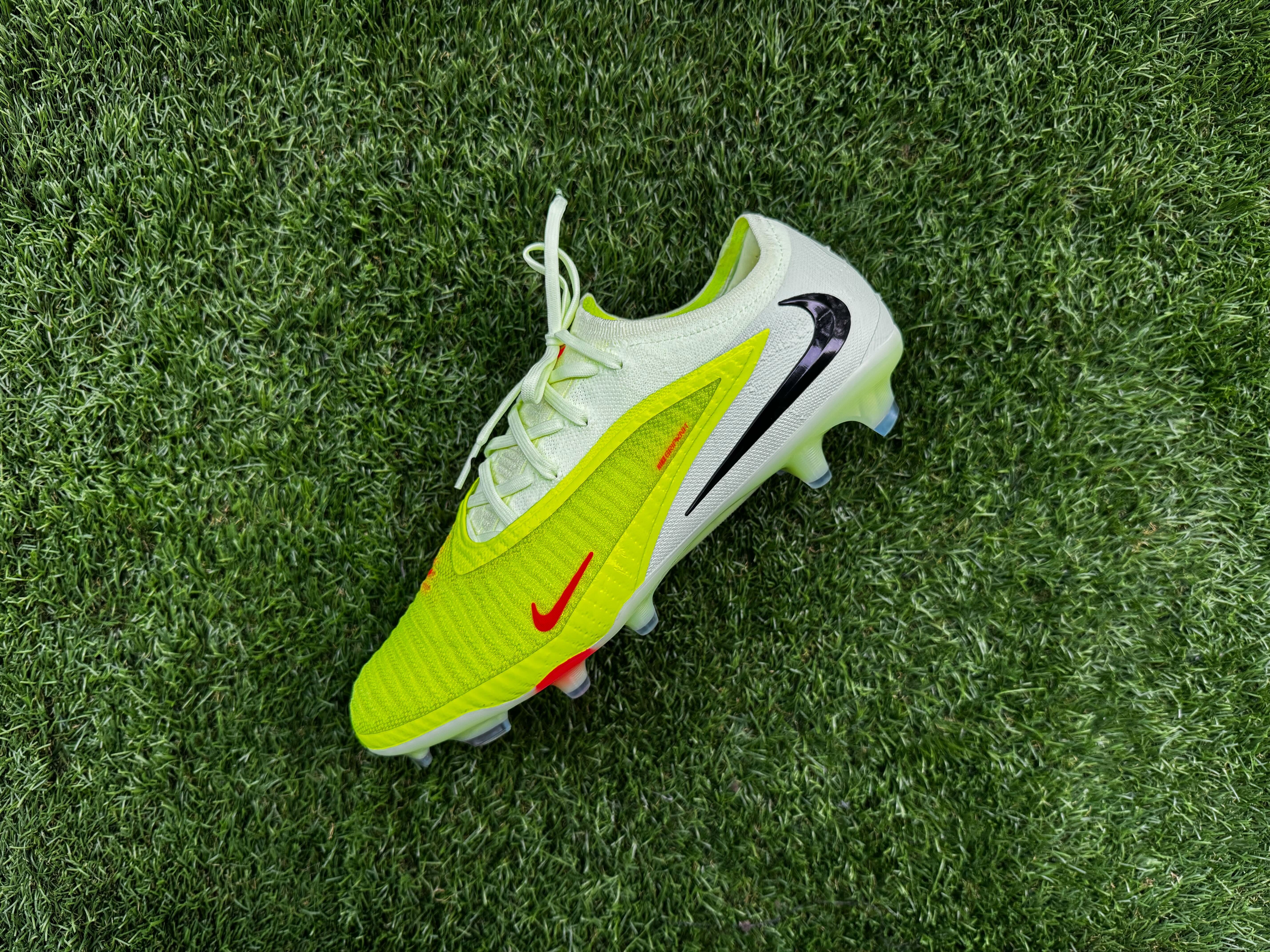
Nike Phantom 6 Elite
Our expert review:
Specifications
Reasons to buy
Reasons to avoid
The Nike Phantom 6 Elite taking some of the best characteristics and learns from the Nike GX 1 and GX 2 and combines them to create a cleat that is superior to both of these well received predecessors. Visually, the cleat has a lot of similarity to the hugely popular GX 1 with its two-piece construction with the top layer featuring the sticky GripKnit, which is once again one the stars of the show.
The GripKnit on the Phantom 6 is softer in than the slightly rougher version from the GX 2 and feels grippier on the ball – music to the ears of the midfield controllers of the world. The off centred lacing creates a large strike zone for cleaner contact on longer passes and shots at goal and Nike have included a dedicated strike area with more dramatic grip to impact swerve and dip. It will not necessarily have a significant impact on the ball but is a nice addition.
The outsole features an updated version of the Cyclone 360 plate first seen on the Phantom Luna and then the GX 2. The plate is slightly stiffer with some extra studs in the midfoot and generally feels better than its predecessor that felt a little over-flexible so lacking in stability.
Just as with the two previous Phantom models, the Phantom 6 is comfortable out of the box and accommodating for those with wider feet. Nike has been on a good run with the Phantom over the past few years and the Phantom 6 may be the best in recent years.
How we test soccer cleats
We test as many cleats as possible over as many training sessions and matches that we can fit in to determine the true performance of each individual option available on the market. While testing, we consider a reange of different key factors to provide a true level of performance. These include: comfort, stability, fit and feet. Of course, this guide is for midfielders, so how well the cleats work when striking and passing the ball is certainly at the forefront of our testing minds.
This helps to balance the claims from brands and what we truly feel on our feet, separating the marketing jargon from the reality.
Each pair is tested by an expert member of the team who lives and breathes soccer cleats – and who play a lot of games! As experienced testers, they cut straight to the detail, providing simple yet comprehensive advice for players of all levels on what might suit them best.
How to choose the best soccer cleats
There's such an array of options in the soccer cleat market, that selecting the right pair can often prove a minefield. Each brand champions their latest technology as being the best around, though that's not always the case. Taking each claim with a pinch of salt, therefore, is of paramount importance.
Ultimately, making your choice comes down to personal preference. The main consideration has to be whether you enjoy playing in a particular pair of cleats, though there are a range of other factors that should be front and centre of mind when looking for your next pair...
Getting the right fit
In our opinion, this is the most important factor to consider. You could well have found the cleats of your dreams, with the style and design offering everything you ever wanted. However, if they don't fit right, then they're no use.
You might have narrow feet, so a slightly wider option doesn't, and vice versa. Blisters, feet slippage and a poor feeling for the ball are no fun for anyone, so take careful consideration at this stage.
We would always recmmomend trying a pair on before buying, otherwise you run the risk of ruining your performance just because you found a pair online that you liked the look of. Plus, brands often vary slightly in length, despite the same size being advertised, so it's important to try a pair on in order to know whether it is better to go a half-size up or down for a particular pair or brand.
Styling
Once you've found the right fitting soccer cleats, there will undoubtedly be a range of colorways and styles available on the market. This is where players can truly come to express themselves, with the majority of brands offering colors that are both simple and flashy for the exact same pair.
Leather or synthetic
For midfielders, the material of the upper is an extremely important thing to consider. Synthetic uppers are thinner and therefore more lightweight, but offer little in the way of protection. Conversely, leather is generally more comfortable and padded, but can sometimes be a bit bulky and reduce the feeling on the ball.
Most synthetic uppers will be slightly thinner and offer less padding than their natural leather counterparts. They will, though, offer a much closer connection to the ball with the thinnest synthetics providing a close to barefoot feel.
There is also the option of leather-imitating synthetics that represent a nice in between. These are often more lightweight than natural leather but come with much of the same comfort and pliability.
As a result, leather does seem the better option for defenders, because protection during heavy tackles can be the difference between injuries and safety.
Despite this, it does simply come down to personal preference. Midfielders don't have to conform to the norm and opt for leather options – if they prefer a Nike Mercurial Superfly, then let's go!
Best Soccer Cleats For Midfielders: FAQs
What are the best soccer cleats for midfielders?
We think the best soccer cleats for midfielders are the Mizuno Morelia 2 UL Made in Japan. They're the best overall soccer cleats in our guide above and they're aesthetically stunning, immediately comfortable and lightweight.
Are Mercurials for midfielders?
They absolutely can be. Your cleats are your choice and Nike Mercurials are a great choice of soccer cleats. We actually rate the Nike Mercurial Superfly 10s as the best soccer cleats for strikers, but that's due to their emphasis on enhancing speed. Mercurials are good for comfort but do feature a responsive touch on the ball and outsole, making them a good choice for midfielders, too. And, if you like a lightweight feel, they could be the right choice for you.
What are midfielder cleats?
There's nothing specific that makes a cleat a midfielder cleat; it's all down to your personal preference. However, features like a responsive touch on the ball and a soleplate that can allow for quick turns and bursts of pace will help. You'll also want an upper that can enhance ball striking, as passing, dribbling and shooting are all key parts of a midfielder's game. Comfort is another factor to consider, as the midfield is arguably the most demanding area of a soccer game for any player.
What position is Adidas Predator for?
The Adidas Predator is a superb choice of soccer cleats for midfielders. We rate the Adidas Predator Elite as the best option for midfielders on the market. Predators are one of the most iconic soccer cleats ever made, with one of the best aesthetics, but they also offer ample comfort and an enhanced touch on the ball. The newer Predator Elites are the lightest options yet. While you can wear Predators in any position, we think they're best suited for midfielders.
The best features, fun and footballing quizzes, straight to your inbox every week.

Ryan is a staff writer for FourFourTwo, joining the team full-time in October 2022. He first joined Future in December 2020, working across FourFourTwo, Golf Monthly, Rugby World and Advnture's websites, before eventually earning himself a position with FourFourTwo permanently. After graduating from Cardiff University with a degree in Journalism and Communications, Ryan earned a NCTJ qualification to further develop as a writer while a Trainee News Writer at Future.
 Join The Club
Join The Club





